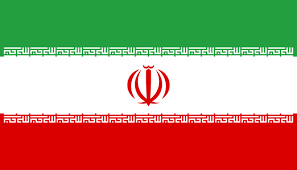Language/Iranian-persian/Culture/Lesson-10:-Persian-etiquette-and-hospitality
 Հայերէն
Հայերէն Български език
Български език 官话
官话 官話
官話 Hrvatski jezik
Hrvatski jezik Český jazyk
Český jazyk Nederlands
Nederlands English
English Suomen kieli
Suomen kieli Français
Français Deutsch
Deutsch עברית
עברית हिन्दी
हिन्दी Magyar
Magyar Bahasa Indonesia
Bahasa Indonesia Italiano
Italiano 日本語
日本語 Қазақ тілі
Қазақ тілі 한국어
한국어 Lietuvių kalba
Lietuvių kalba Νέα Ελληνικά
Νέα Ελληνικά Şimali Azərbaycanlılar
Şimali Azərbaycanlılar Język polski
Język polski Português
Português Limba Română
Limba Română Русский язык
Русский язык Српски
Српски Español
Español العربية القياسية
العربية القياسية Svenska
Svenska Wikang Tagalog
Wikang Tagalog தமிழ்
தமிழ் ภาษาไทย
ภาษาไทย Türkçe
Türkçe Українська мова
Українська мова Urdu
Urdu Tiếng Việt
Tiếng ViệtIranian hospitality is renowned worldwide. The culture places great value on welcoming guests and extending generosity without any expectation of return. In this lesson, you will learn about the customs and etiquette that are associated with greetings, hosting, gift-giving, and table manners in Iran.
Persian Greetings
Persian greetings are usually warm and cordial, reflecting the hospitality and friendliness of the culture. Here are some common Persian greetings:
| Farsi | Pronunciation | English |
|---|---|---|
| سلام | Salaam | Hello |
| خداحافظ | Khodaa haafez | Goodbye |
| خوش آمدید | Khosh aamadid | Welcome |
| صبح بخیر | Sobh bekheyr | Good morning |
| عصر بخیر | Asr bekheyr | Good afternoon |
| شب بخیر | Shab bekheyr | Good night |
When greeting someone, it is customary to shake hands (men) or kiss cheeks (women). However, avoid physical contact with the opposite sex unless they initiate it.
Hosting and Guest Etiquette
Hosting guests is an important part of Persian culture, as is being a polite and gracious guest. Here are some customs to keep in mind:
- Guests are considered a blessing in Persian culture, so hosts go to great lengths to make sure they feel welcomed and comfortable.
- When invited to someone's house, bring a small gift, such as flowers, sweets, or fruit. It is also customary to bring a small gift for the children of the household.
- Remove your shoes before entering the host's home, unless they tell you otherwise.
- Be prepared to compliment the host's home and hospitality throughout your visit.
- When sitting down for a meal, wait for the host to invite you to start eating. It is polite to take small portions and ask for seconds before helping yourself.
- Never leave any food on the plate or bowl, as it may be interpreted as a sign that the food was not good. However, if you are too full, it is best to refuse politely when offered more food.
Table Manners
Table manners are important in Persian culture and reflect the appreciation of good food, company and hospitality. Here are some table manners to keep in mind:
- When sitting down at the table, wait for the host to invite you to sit down, and then wait for them to begin eating or drinking.
- Wash your hands before and after eating. Use cutlery if it is provided or the right hand to eat with bread or naan.
- Take small portions of food at a time, and ask for seconds before helping yourself. Refrain from reaching across the table to serve yourself.
- Chew with your mouth closed and avoid slurping or making other noises while eating.
- Do not speak with your mouth full, and never interrupt someone who is speaking.
- Say "Naz-diketoon" (“may it come near you”) to anyone who is eating to wish them a good meal.
Gift Giving
Gift-giving is an important part of Persian culture, and is often done for special occasions or to show appreciation. Here are some customs to keep in mind:
- When giving a gift, it is important to wrap it elegantly or present it in a gift bag.
- Gifts should be handed over with both hands, or the right hand while the left hand is placed on the right elbow.
- It is customary to refuse a gift several times before finally accepting it.
- If you are given a gift, it is polite to return the favor, preferably with a gift of similar value.
Conclusion
Persian culture values hospitality and generosity, and these traditions are reflected in the customs and etiquette surrounding greetings, hosting, gift-giving, and table manners. Remember that politeness and respect are highly valued in this culture, so always be courteous and gracious, whether as a host or a guest.
Sources


